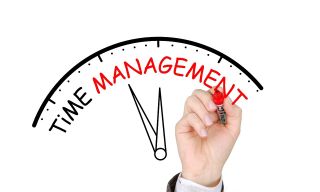Technology is a more significant part of our classrooms than ever before. A leader who practices efficiency techniques often finds that they are more productive. The school day is often go-go-go and bustling with excitement, energy, and emotions. Most leaders arrive a couple of hours before students and staff and stay at least that long at the end of the day to tackle email, phone calls, and paperwork.
The term “time management” is a misnomer. You cannot manage time; it is not possible. However, you can control the events and tasks in your role in relation to time. To do so, using digital resources will support your shift to becoming more efficient. Here are some of the tools I use as a school and district leader to be more efficient.
8 Efficiency Tools for School Administrators
Calendly is a scheduling tool that supports leaders in managing their appointments and meetings. Calendly lets individuals select their open times according to their availability. Since leaders can set your availability beforehand, you are in control of the day. Calendly will eliminate double bookings with scheduling that checks all your calendars. Calendly only shows available appointment times and adds scheduled events right onto your calendar. The goal is to eliminate the back-and-forth emailing when trying to schedule times. Using Calendly will ensure the ideal time slot for both parties.
Remind is an app/website that sends reminders for appointments, meetings, events, or any updates leaders set up. For example, leaders can use Remind to share about school announcements, upcoming events, or remind families when the next state assessment will be. Remind can be customized to reach out to families by grade or club. Remind even allows users to track stats and read receipts to see who received the message that was sent out.
Slack is a channel-based messaging platform. Leaders can create Slack channels with a selected group of educators to allow for communications around an initiative, grade level updates, or any collaborative topics. In addition, leaders can communicate with staff via instant messaging and collaborate more effectively. Slack is an app; however, it can also be used as a web tool so teachers can receive and send messages from their desk computers or laptops.
Remember The Milk is a free cloud-based tool that lets leaders quickly document thoughts and organize it all for review later. Remember The Milk also allows users to schedule a task either as a one-time or a recurring one. Leaders will benefit from the organization tools as they create, categorize, prioritize tasks, make notes, and track numerous initiatives.
Evernote is a free cloud-based digital notebook that allows leaders to document notes and even have collaborative notes. Evernote enables leaders to manage various file formats into individual notebooks, such as text, contacts, tasks, and image files. Leaders can even attach audio and video files, and PDF documents.
Grammarly is a digital writing tool that can be used for newsletter emails and all communications. It scans documents and conveniently underlines any spelling, grammar, and usage issues. Grammarly will even check your writing work on any online text editor.
Trello is a virtual whiteboard on which leaders can create post-it-style notes and customize each depending on their project requirements. Leaders can have multiple boards for different projects and empower staff to manage the task or oversee the initiative. In addition, when an assigned individual completes a task, the digital note will move to a "completed" space. This can help create an “at a glance” graphic indication of your project’s progress.
SimpleMind is a platform that enables leaders to make digital mind maps. Leaders create editable mind maps that can be customized to fit their needs. The program allows users to have numerous maps to support all aspects of the role. In addition, leaders can improve their mind maps with photos, videos, or voice memos to make their ideas more understandable.
While long days might be part of the role, leaders have to adapt digital efficiency strategies to keep those long hours under control. In addition, being more efficient and feeling less stressed will allow leaders to do the things they want, get more accomplished, and relate more positively to others.

